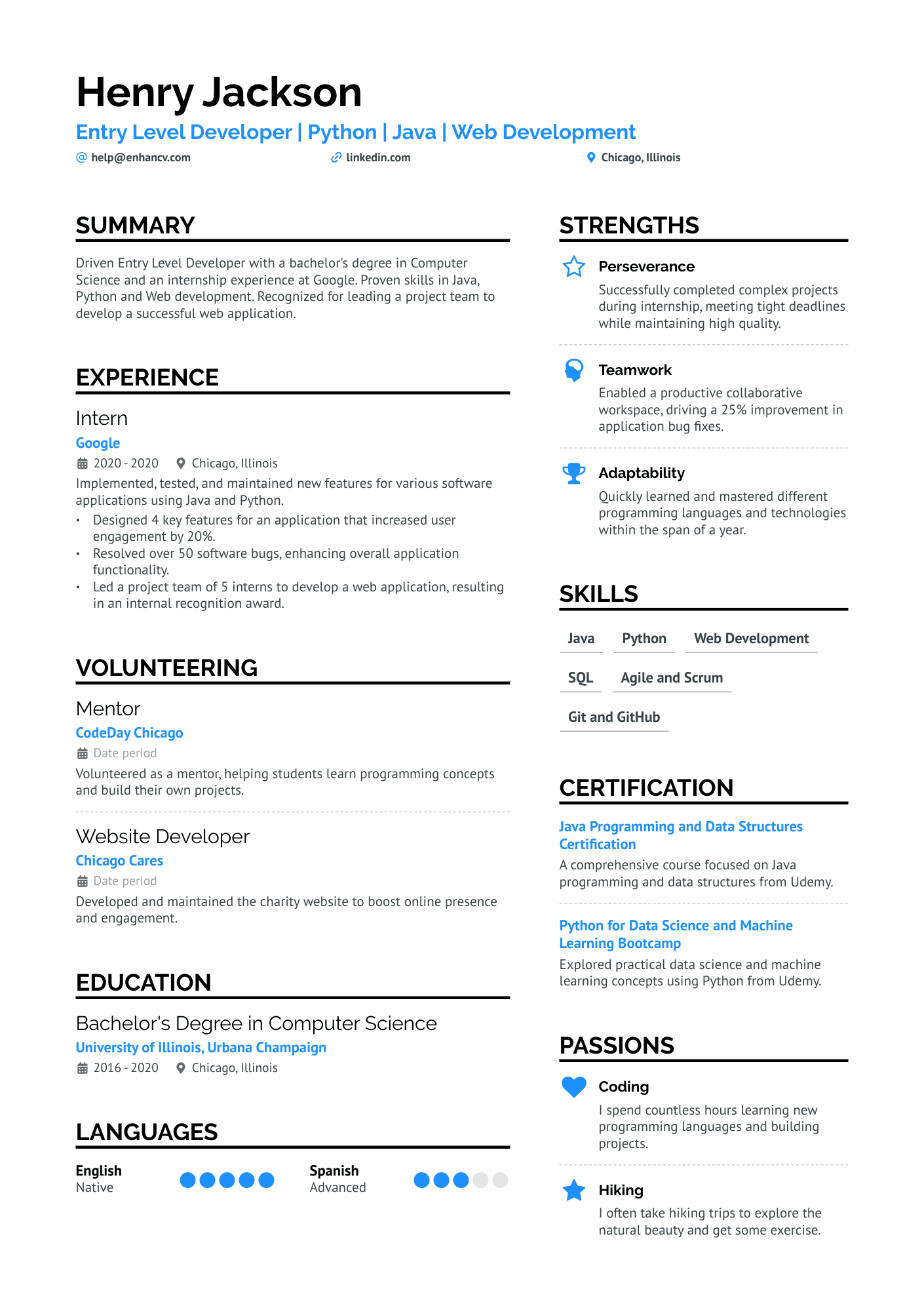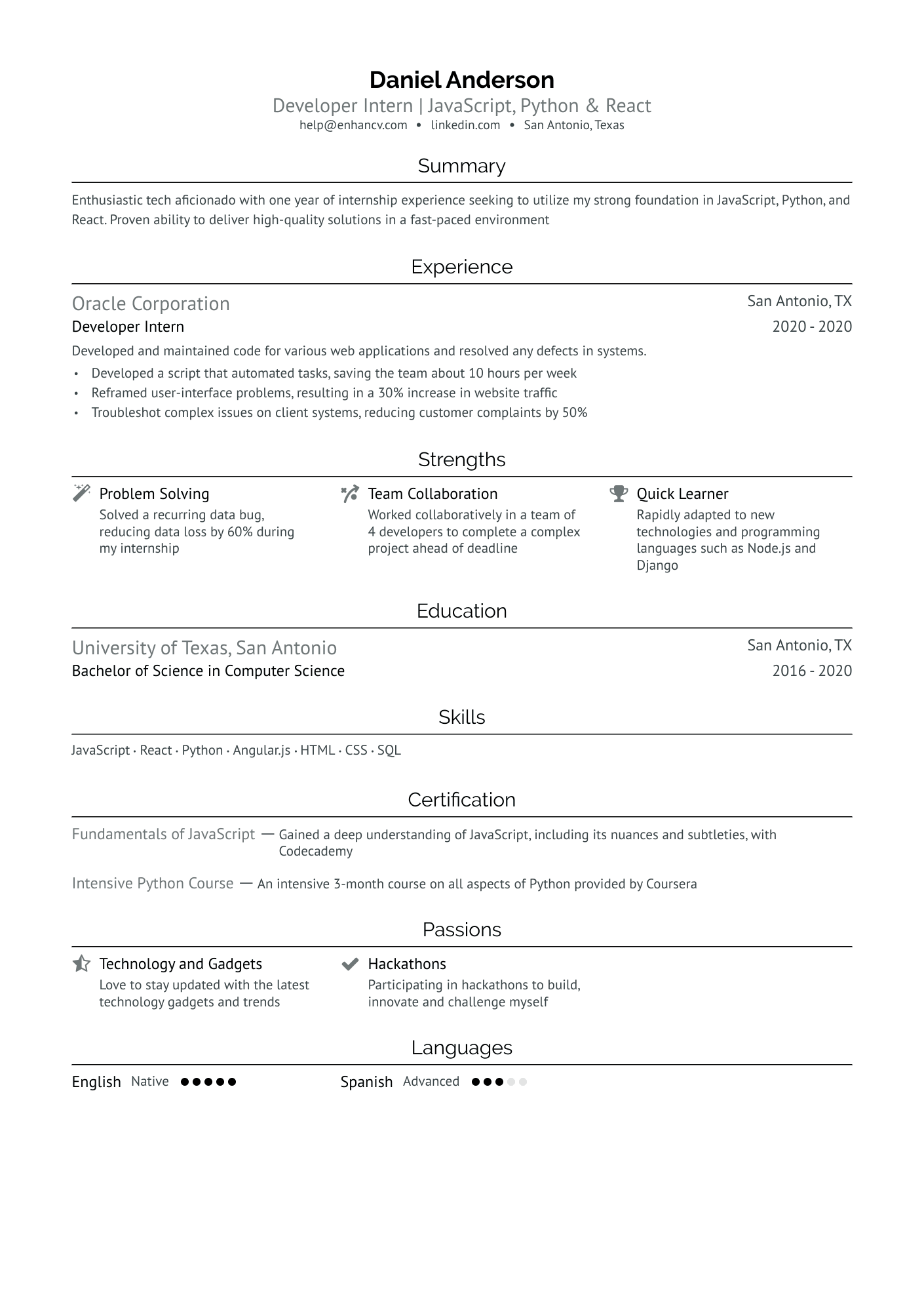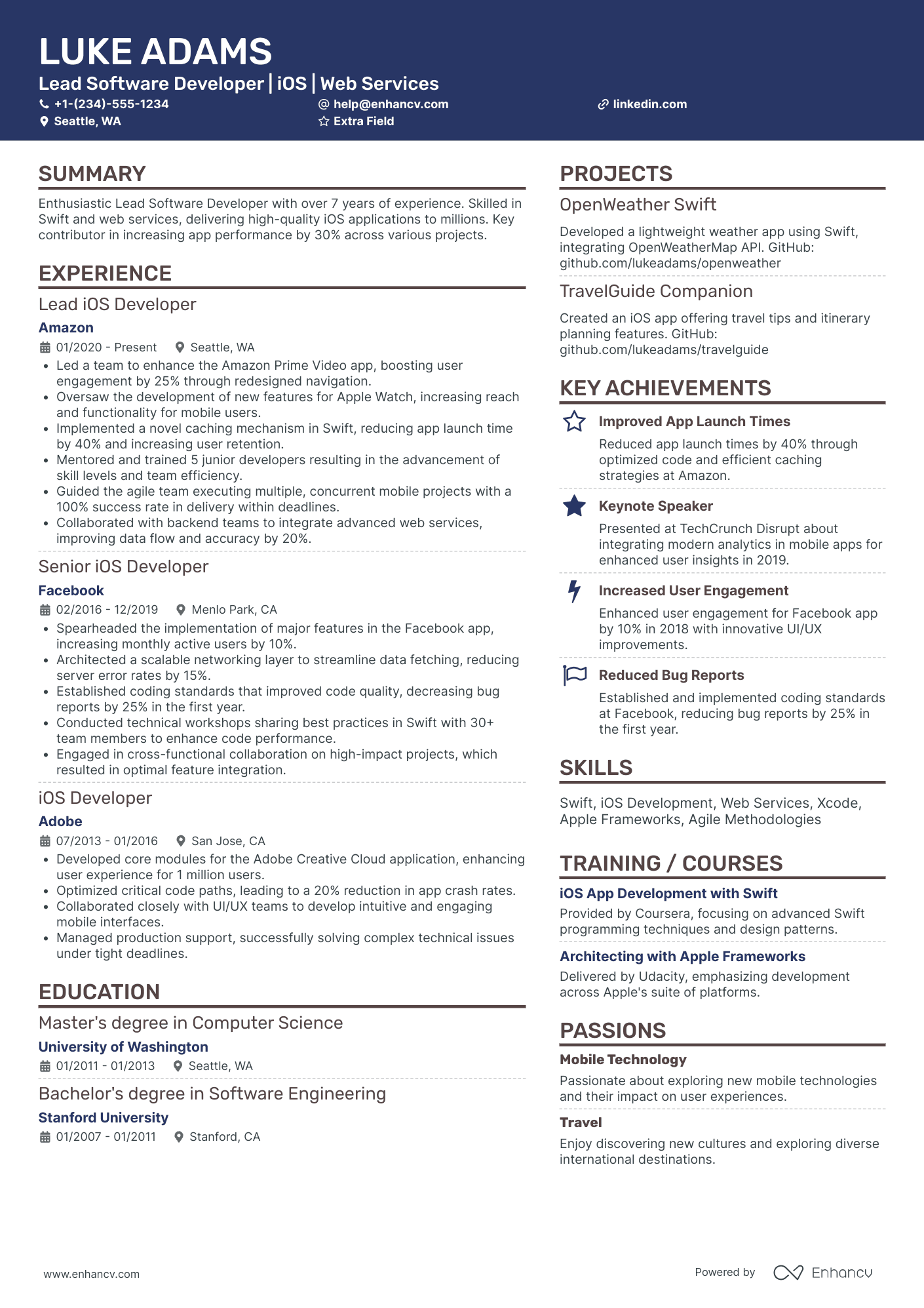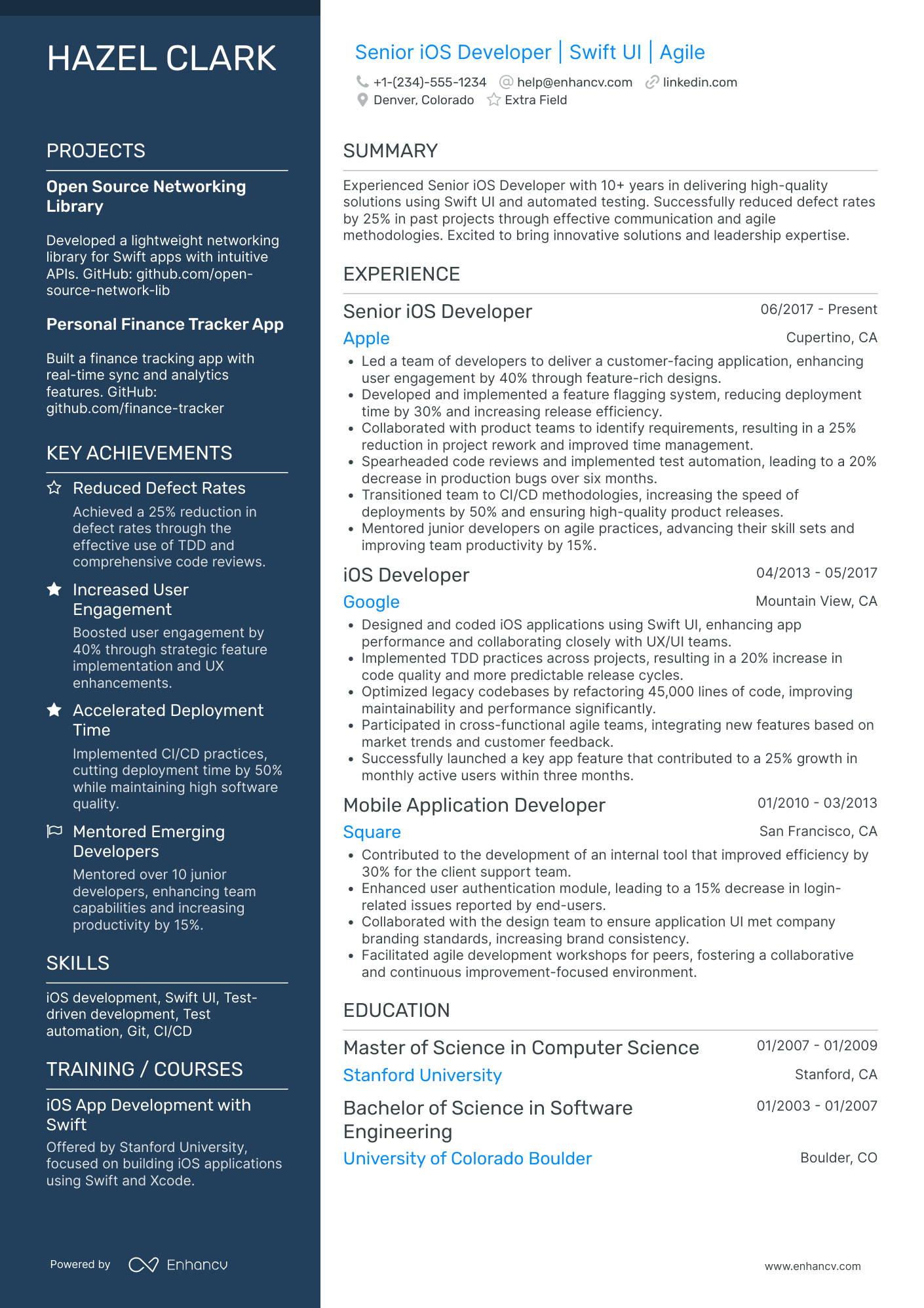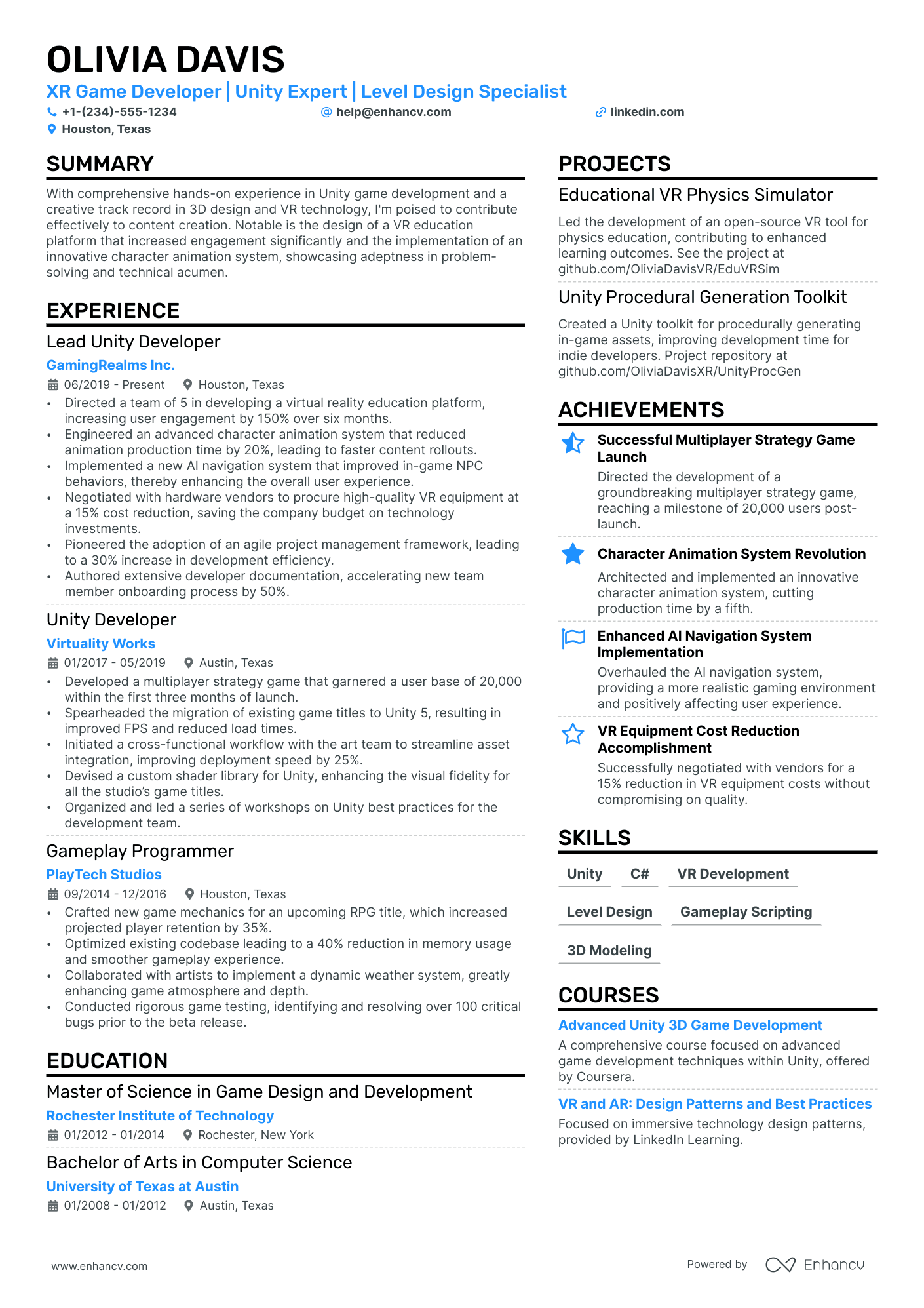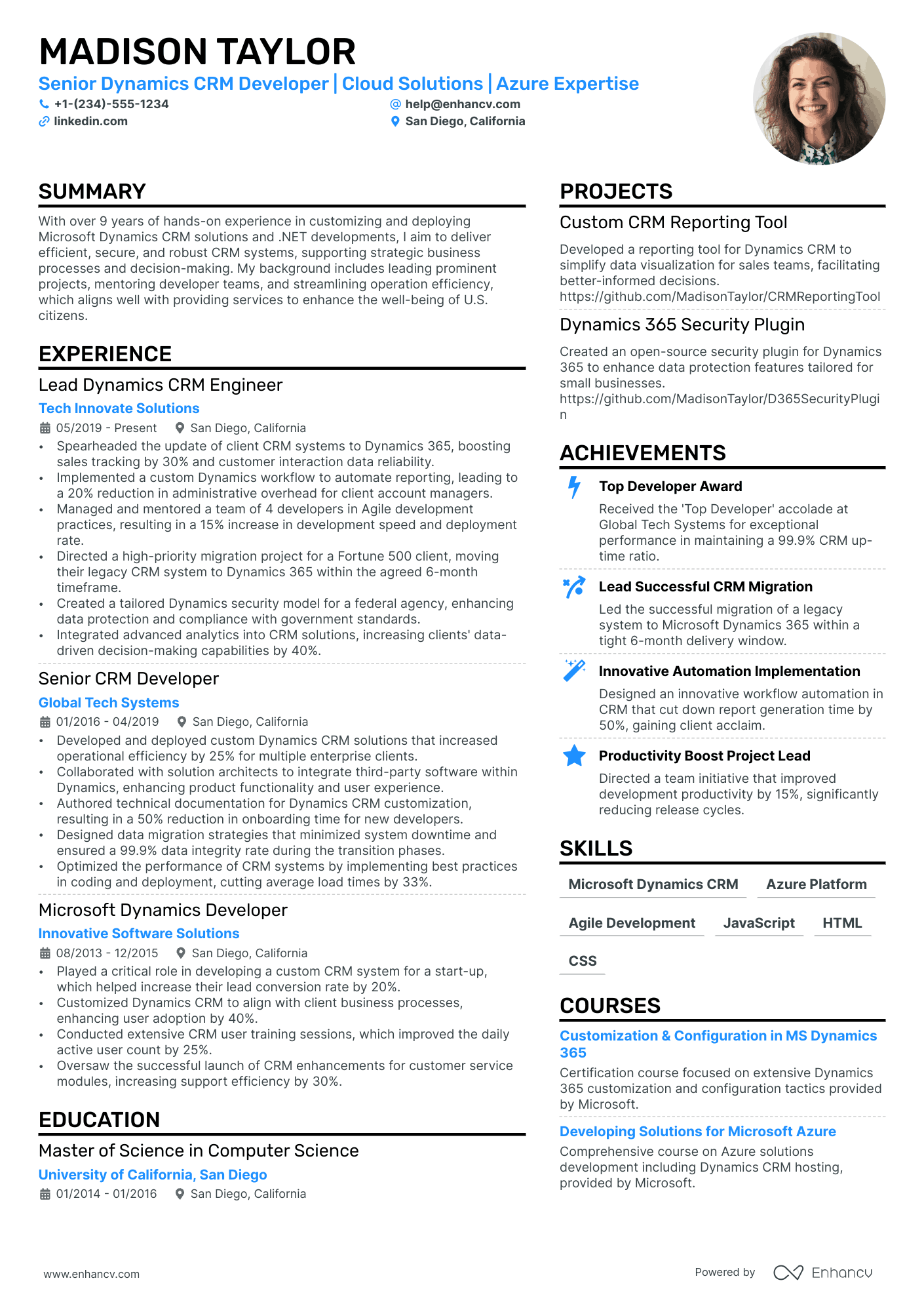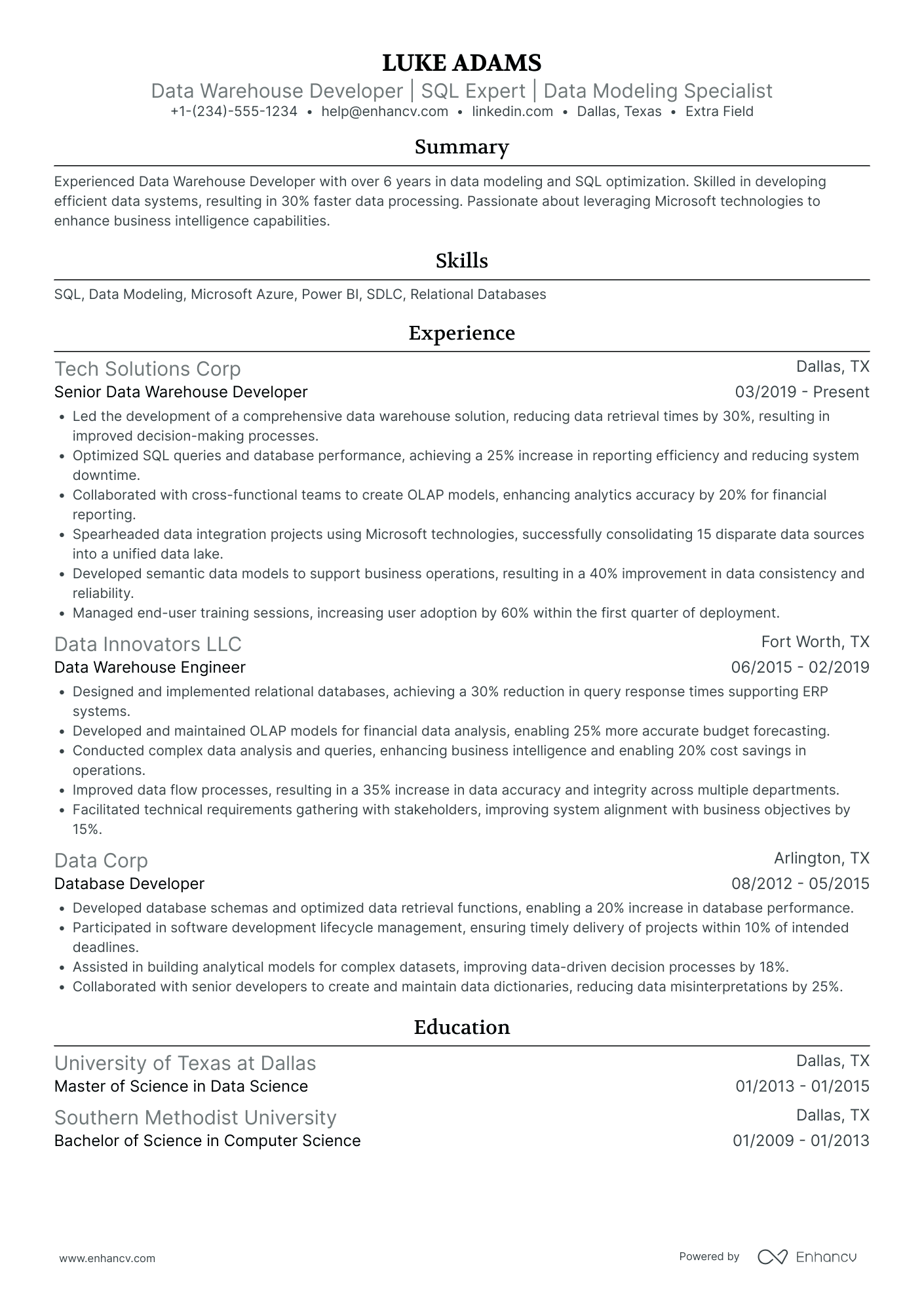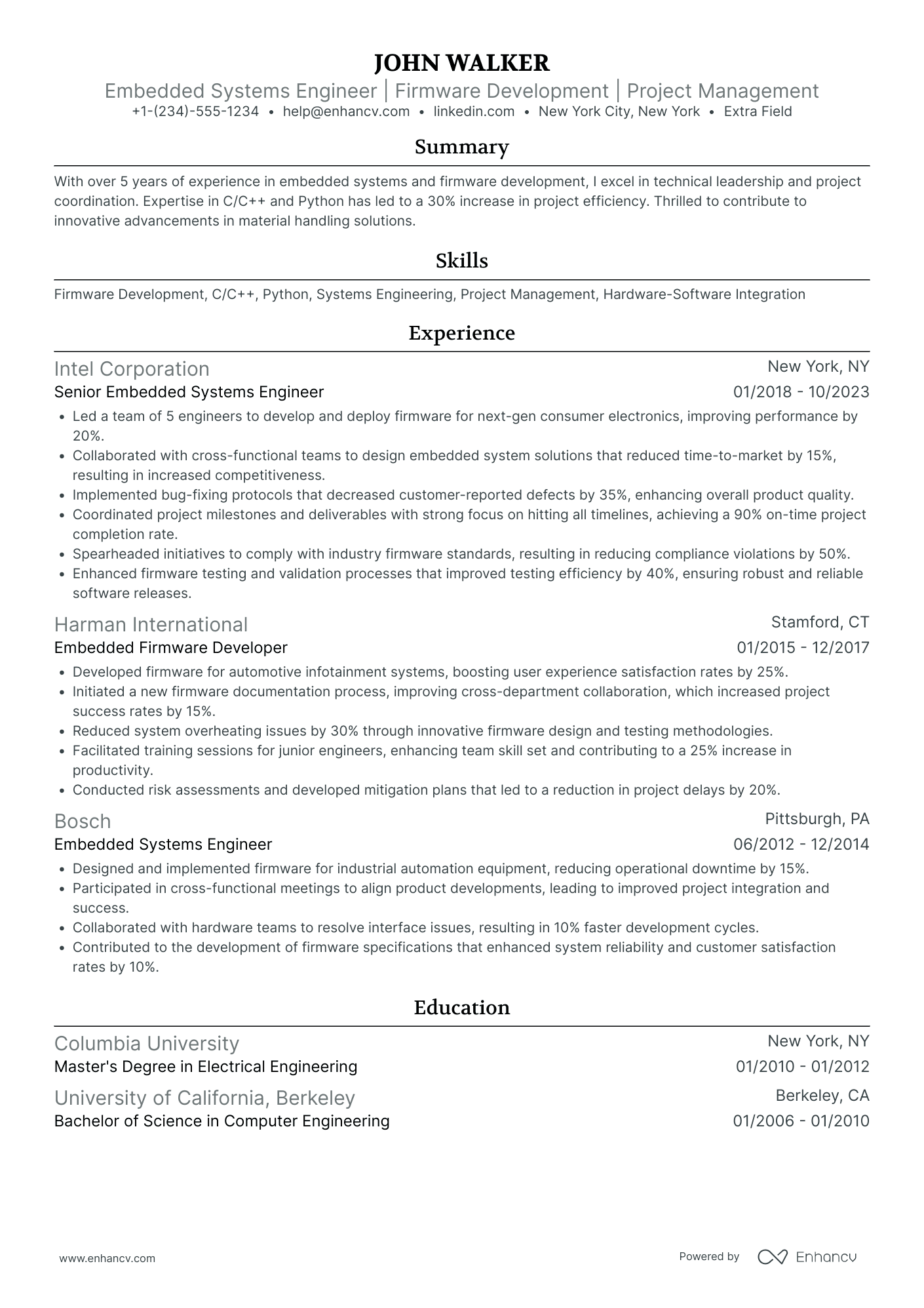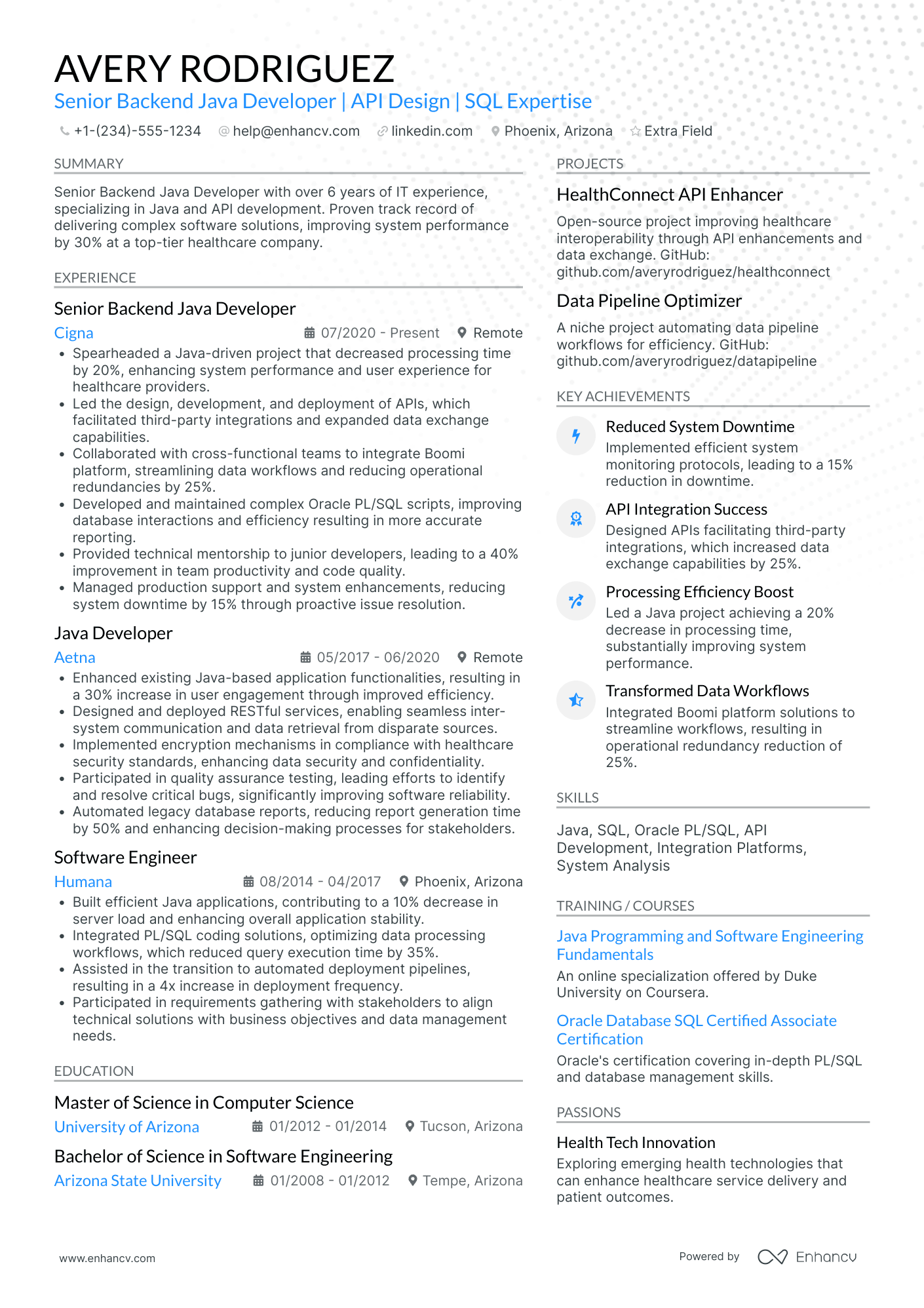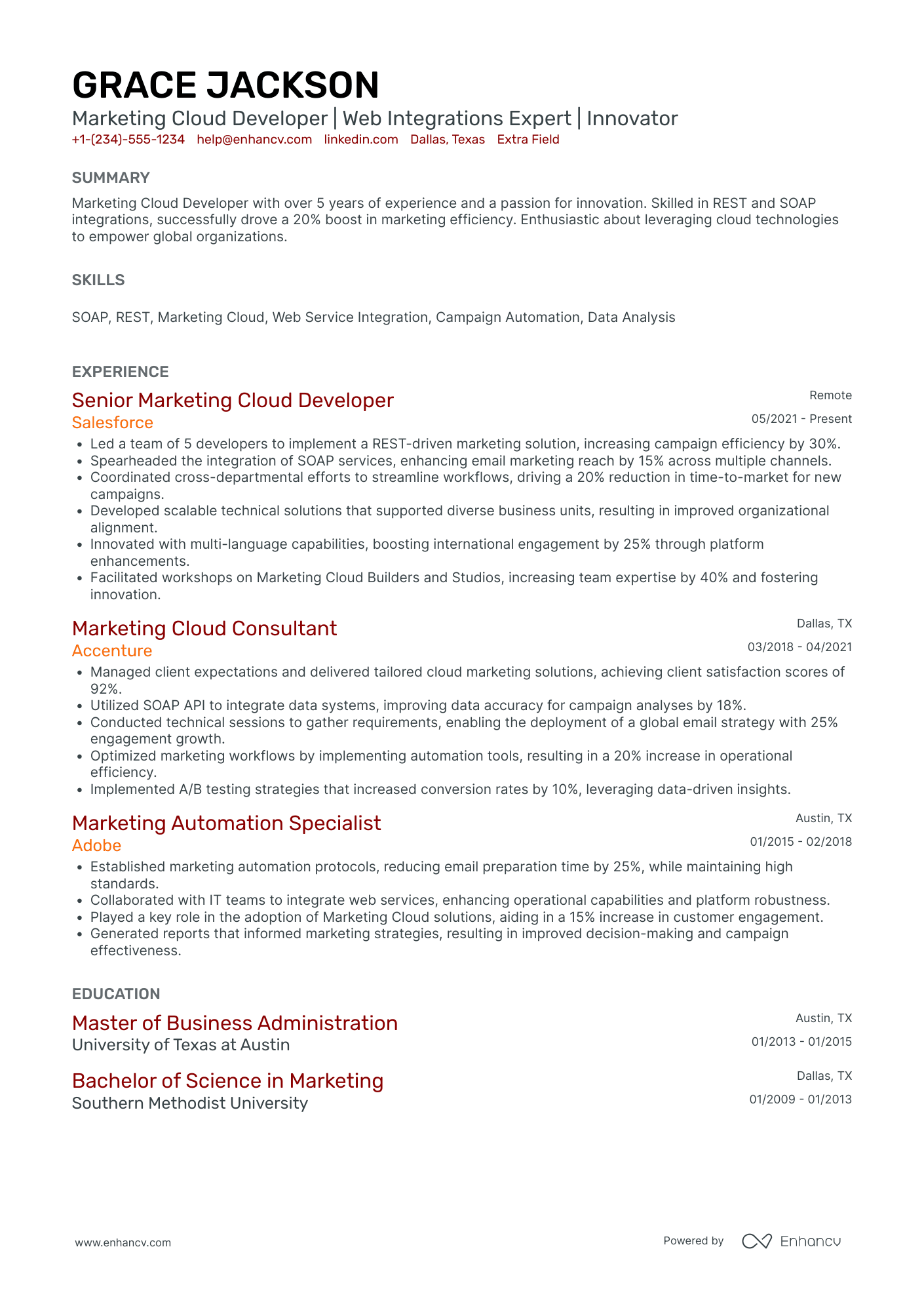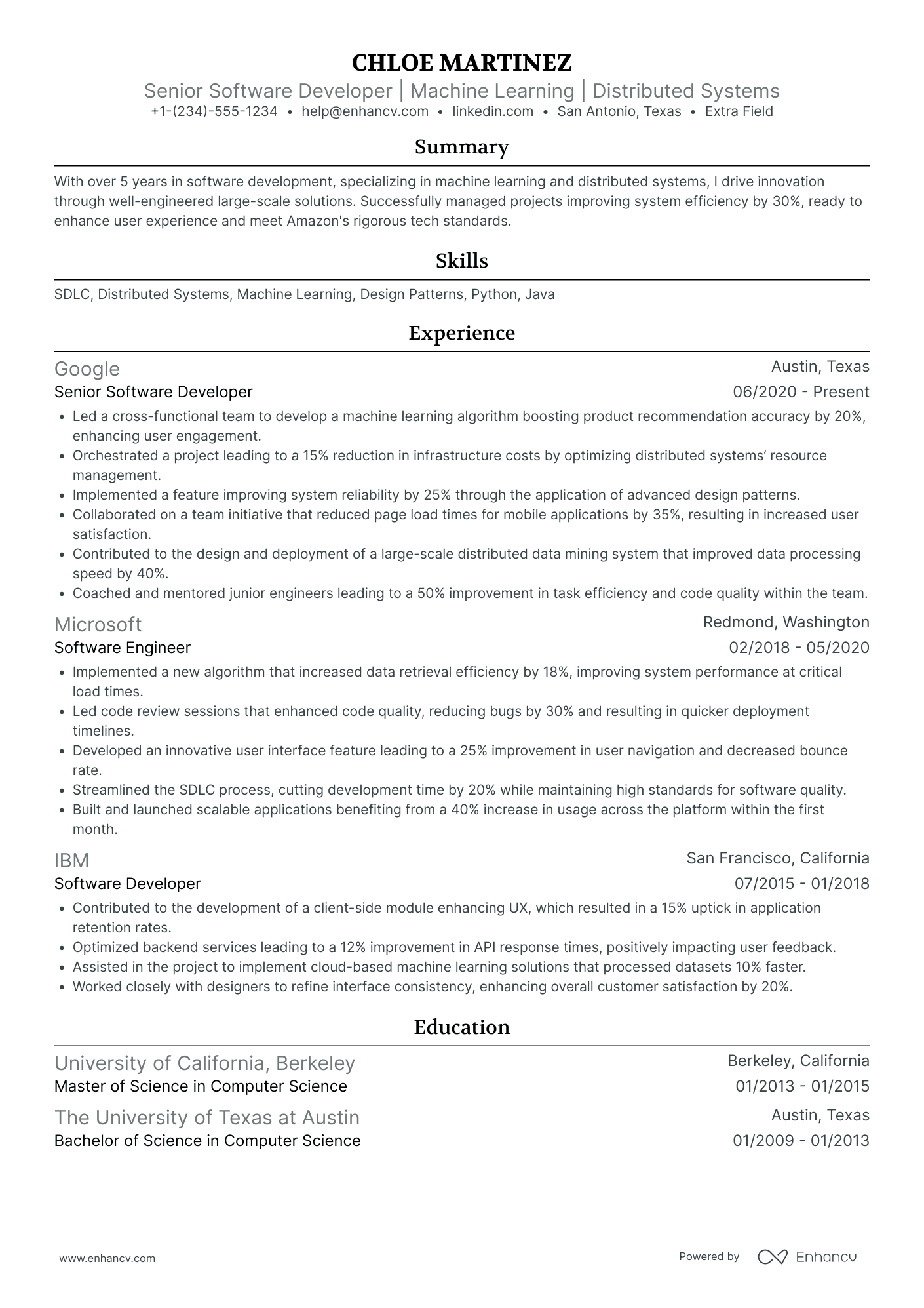Developer resumes often struggle with effectively showcasing both technical skills and project impacts in a concise manner. Our curated resume examples provide clear templates and language that help highlight your expertise and achievements efficiently. Dive into the examples section to craft a standout resume.
Developer resume examples
By Experience
Entry Level Developer
Developer Intern
Just like how product management has been influenced by software engineering, the Developer Intern role is equally impacted, requiring candidates to have a solid understanding of solving actual problems using code.
Here is what you should include in your resume while applying for a Developer Intern position:
- Understand the basics: This is fundamental but important. Mention your understanding of algorithms, data structures, and object-oriented programming. Put across your proficiency in languages such as Java, Python, C++, etc.
- Showcase the projects you've completed: Instead of just mentioning them, explain how these projects helped you solve real-world issues. For example, "Built a web application using Python which reduced process time by 30%."
- Include relevant experience: Internships, hackathons, coding competitions – these are all valuable experiences that show your ability and interest in software development. Explain the skills these experiences have provided you.
- Elaborate on teamwork: Show your capability to work in a team. Agile, scrum methodologies used in past projects will support this point effectively.
- Be open to learning: Comprehend that an intern position is about learning and growing. Show you're willing to learn and comfortable in a fast-paced, ever-changing environment.
Remember, a well-crafted resume can make a difference. Highlight your skills with examples of your achievements or projects and be clear about what you can bring to the role.
Lead Software Developer
Senior iOS Developer
By Role
